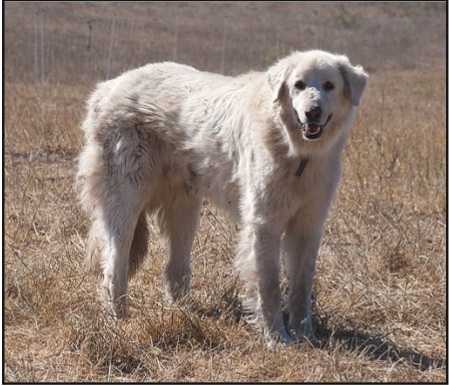[media id=13 width=320 height=240]
The tale of an abandoned sheep dog found by a kind hearted Pilot Valley man ended happily this week by the dog’s adoption by an anonymous benefactor.
[media id=2 width=320 height=240]
“I am so happy he found a good home,” Sutton said Tuesday.
The plight of the dog was featured two weeks ago in the High Desert Advocate.
 “I got more than a half a dozen call after the story and the ad ran,” Sutton said. “I certainly did not expect that. What with the time of year and the bad economic times I thought it would be a long shot to find anyone who would want to adopt him.”
“I got more than a half a dozen call after the story and the ad ran,” Sutton said. “I certainly did not expect that. What with the time of year and the bad economic times I thought it would be a long shot to find anyone who would want to adopt him.”
“He is a beautiful well behaved large dog, looks like a Great Pyrenees,” said Sutton at the time. “He showed up at my house last week, just as friendly as you can imagine. He looks like about 18 months to two years old. I really can’t keep him but I don’t want to take him to the pound. It would be almost a sin to put him down.”
 According to Sutton’s description the dog probably belongs to one of several breeds of livestock protection dogs originally from the Mediterranean Basin of southern Europe, North Africa and West Asia.
According to Sutton’s description the dog probably belongs to one of several breeds of livestock protection dogs originally from the Mediterranean Basin of southern Europe, North Africa and West Asia.
Unlike herding dogs such as shepherds or collies breeds of livestock protection dogs as their description implies protect the herd usually goats or sheep but sometimes cattle from predators.
While their lineage goes back as long as 5,000 years they are still in use and can be seen accompanying Peruvian sheepherders in eastern Nevada during the spring and summer months.
Needing very little if any training the dogs mingle with the sheep and fend off attacks from local predators such as coyotes, bobcats and mountain lions just as their ancestors fought off wolves, jackals and lions at the dawn of civilization.
The dogs success also has a tragic side however. Because they are so easily trained any pup will do and once the season is over the adult dogs guarding a particular herd are either put down or left to fend for themselves once they are no longer needed. Used to be fed regularly and having a instinctive aversion to hunting large herbivores most of these cast offs slowly starve to death over the winter or die of cold, unless they are adopted by sympathetic humans.


